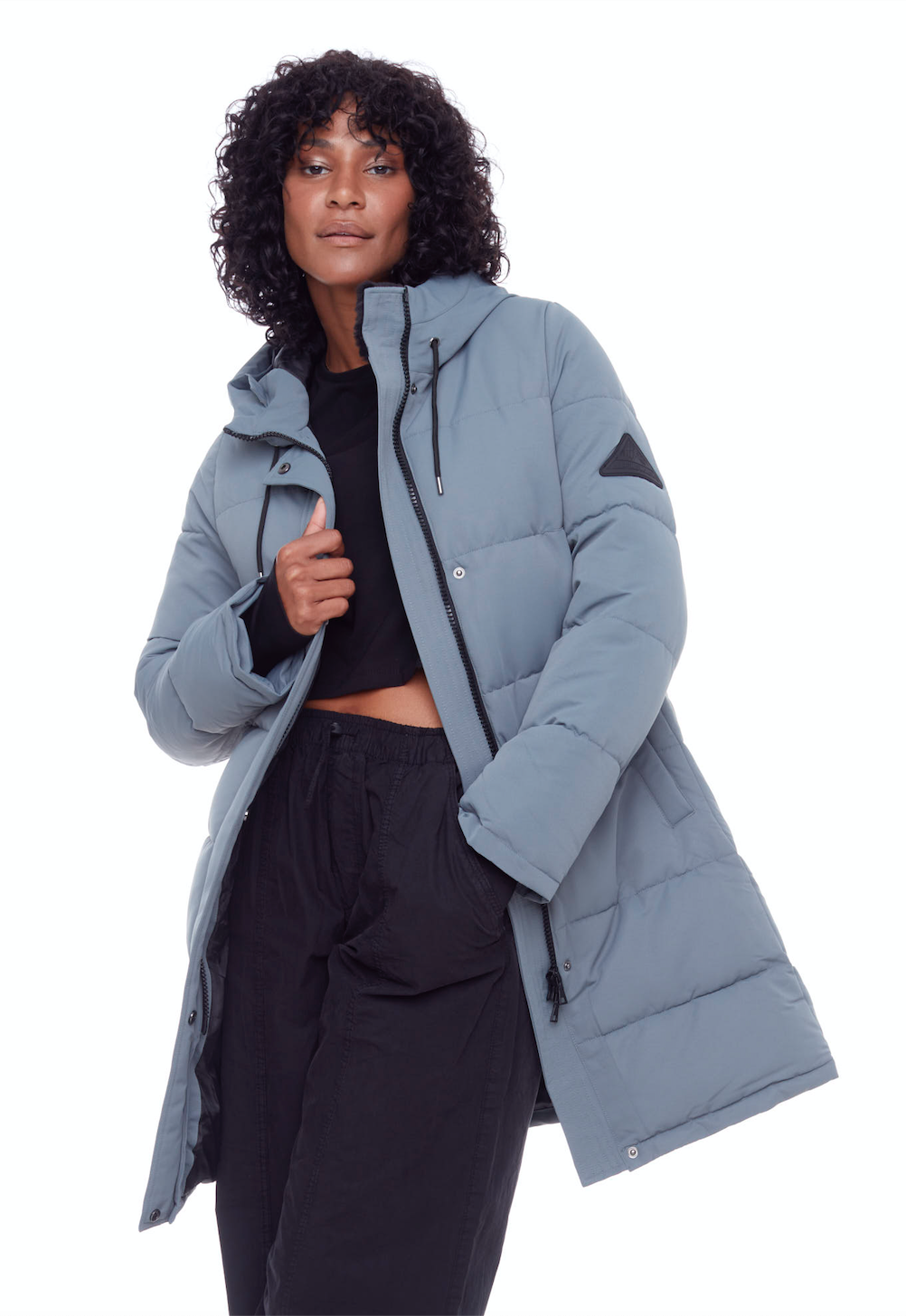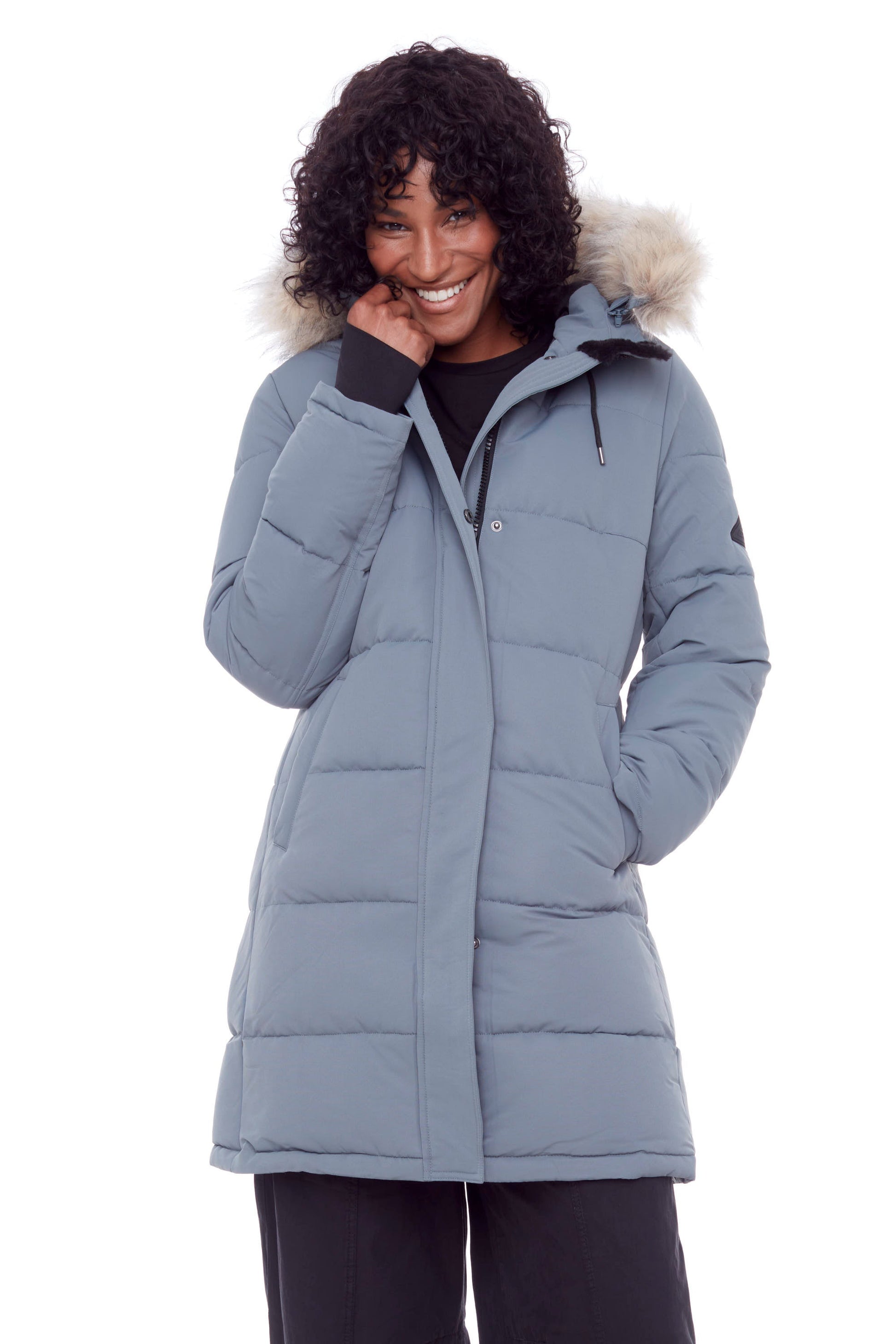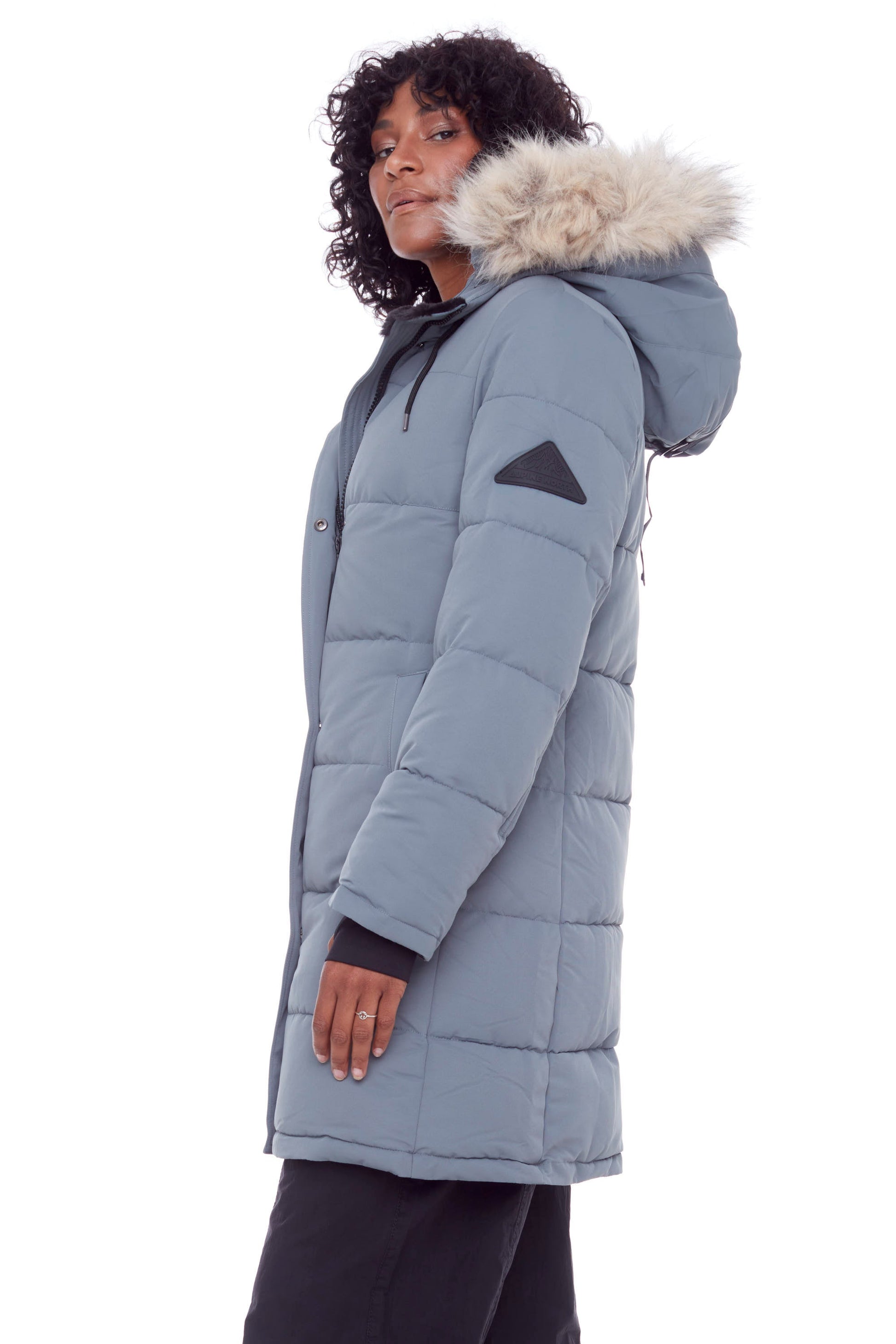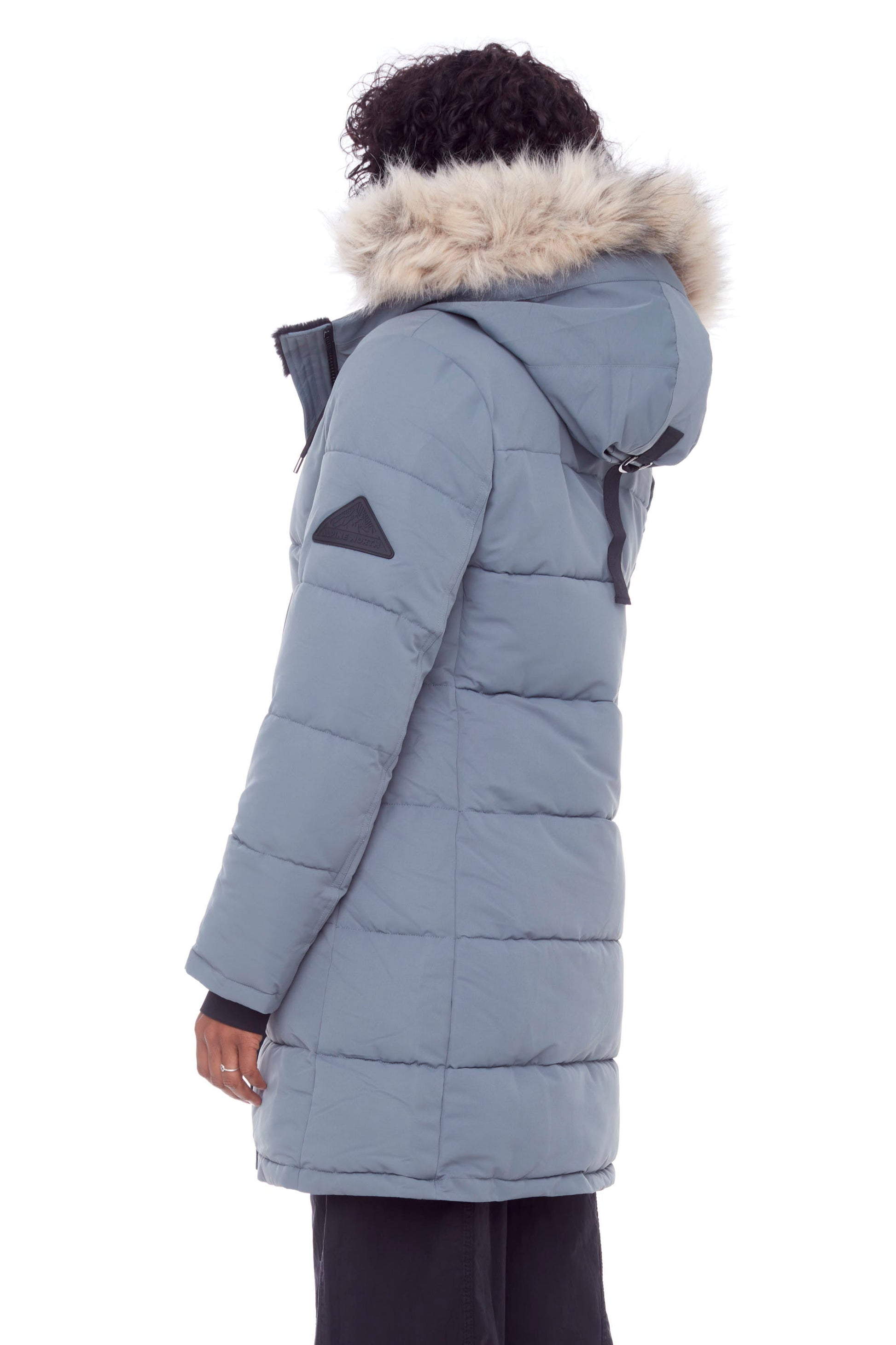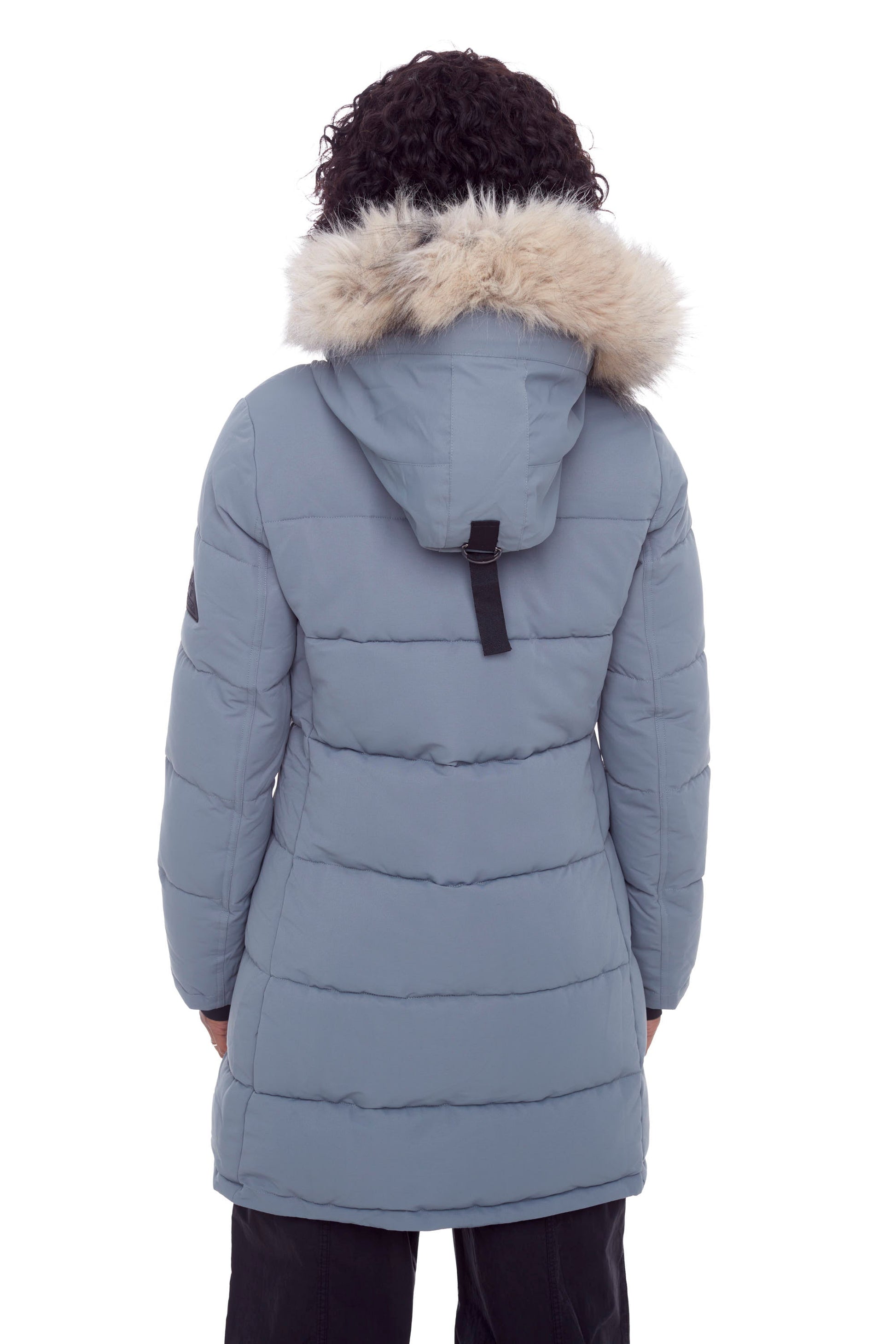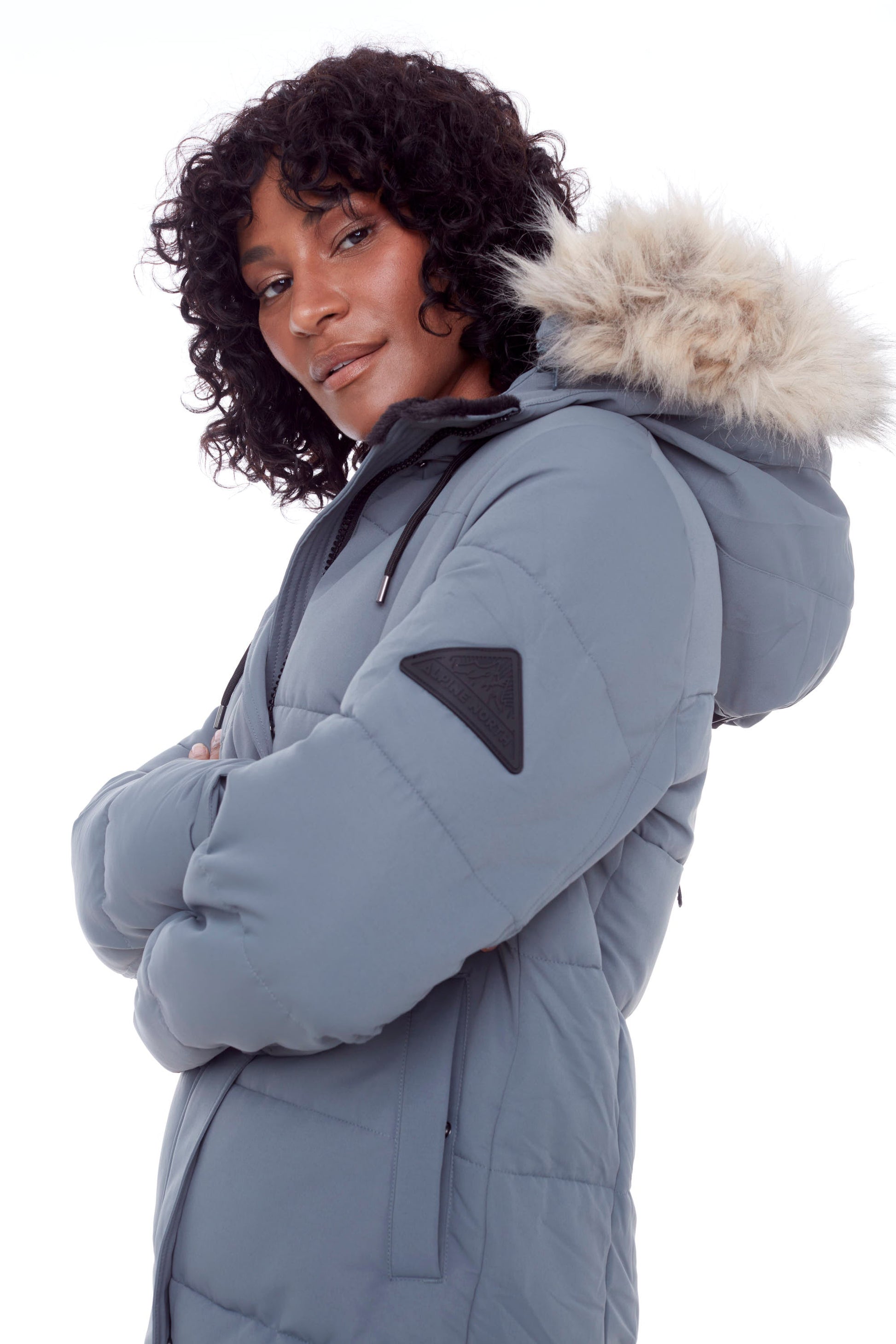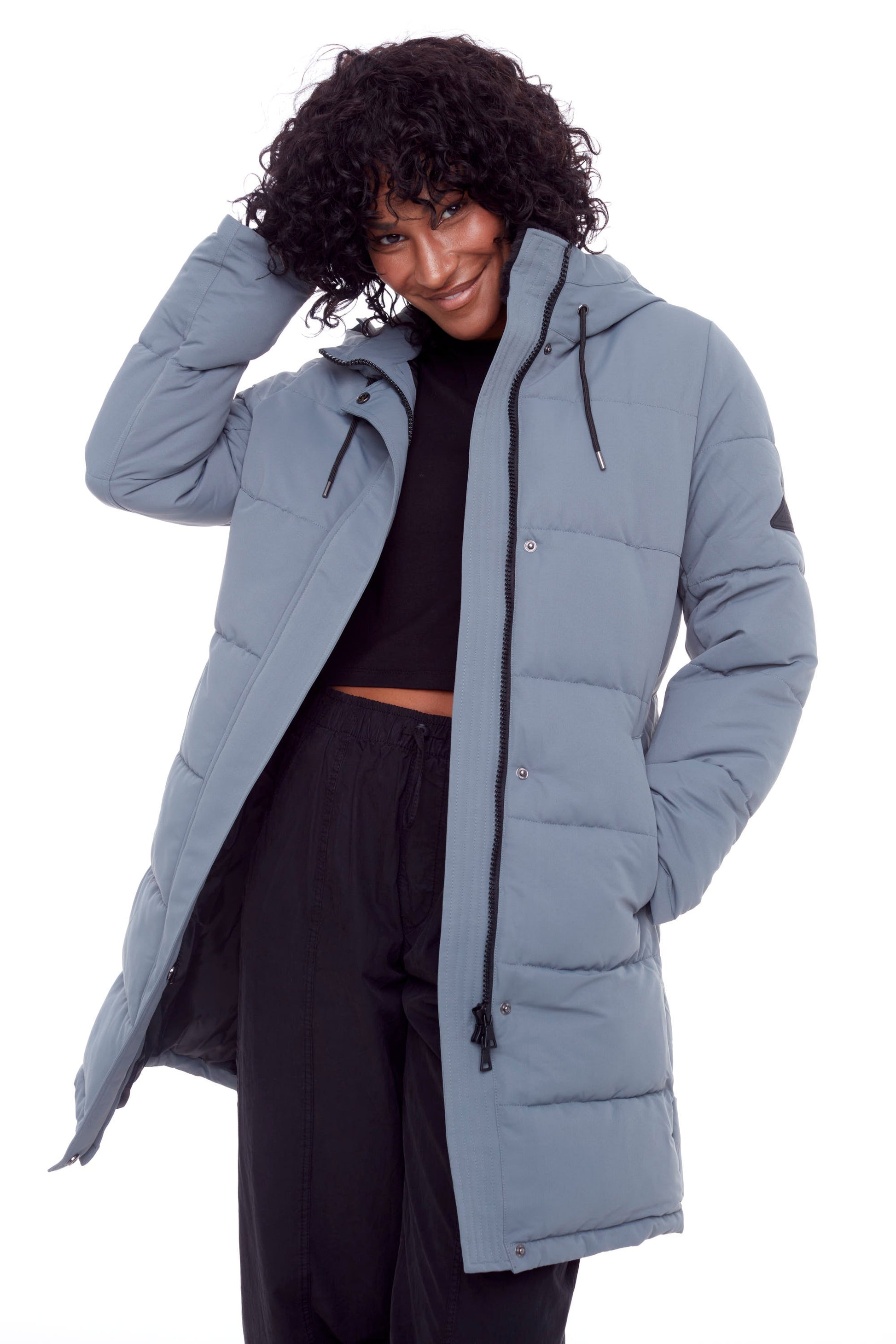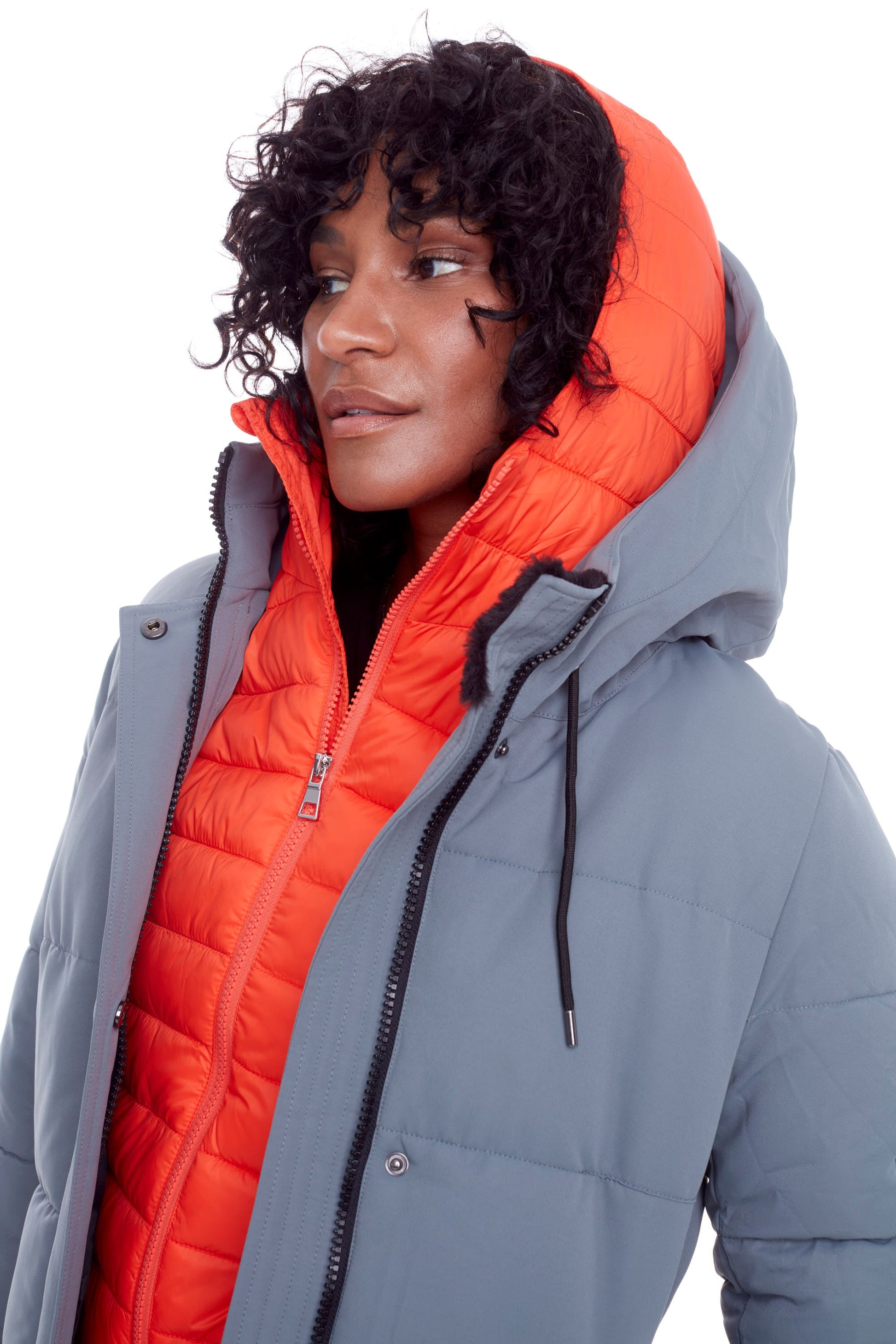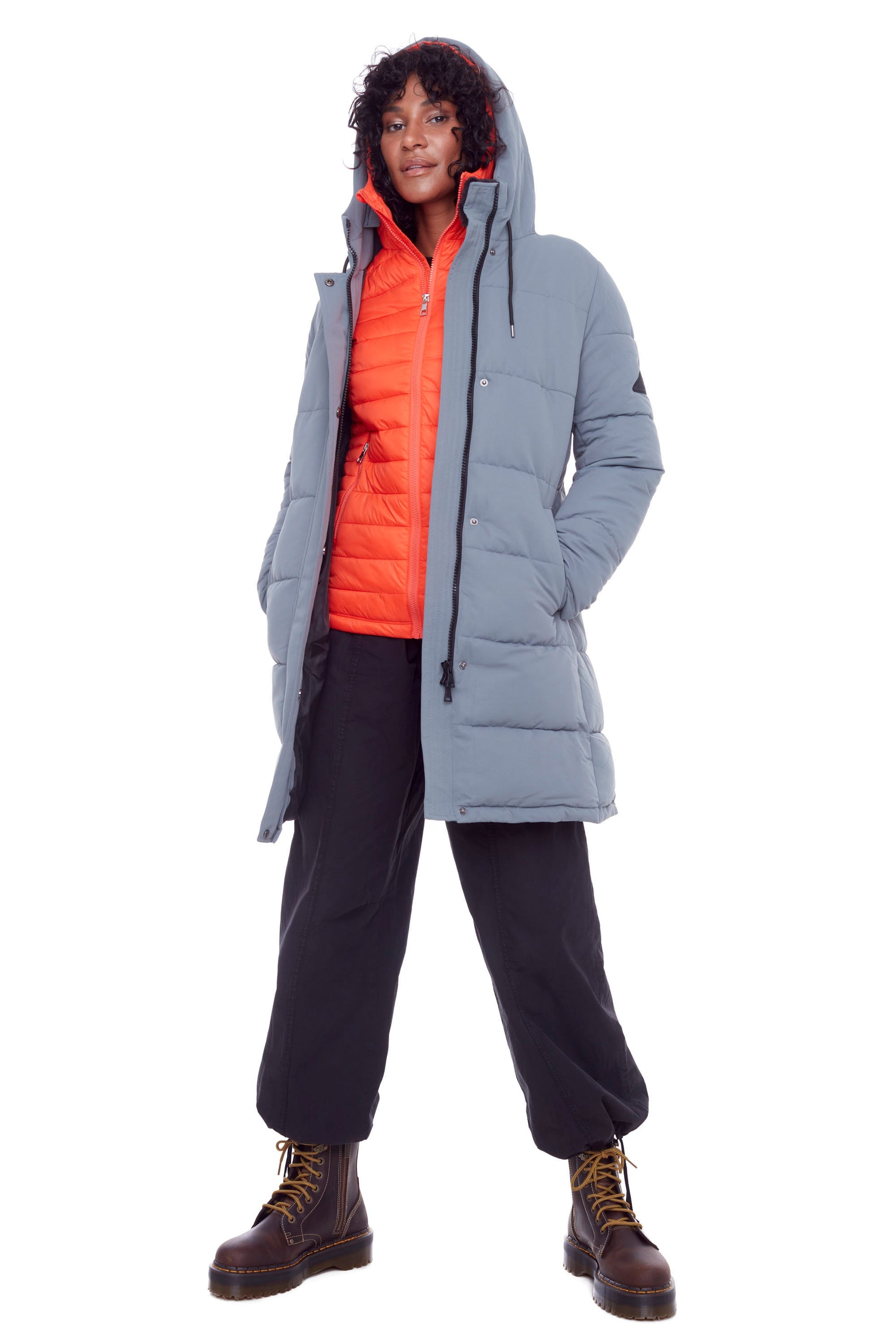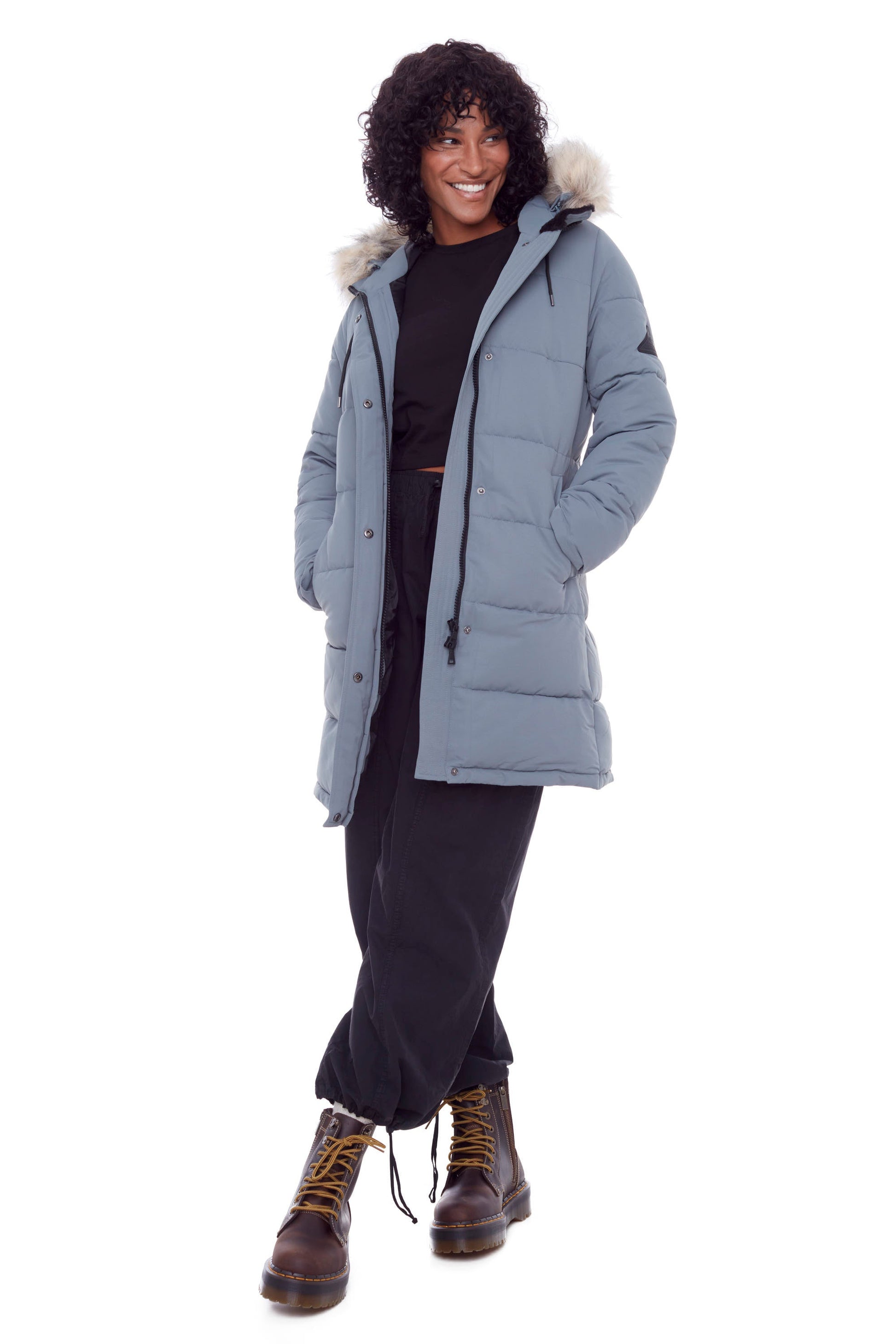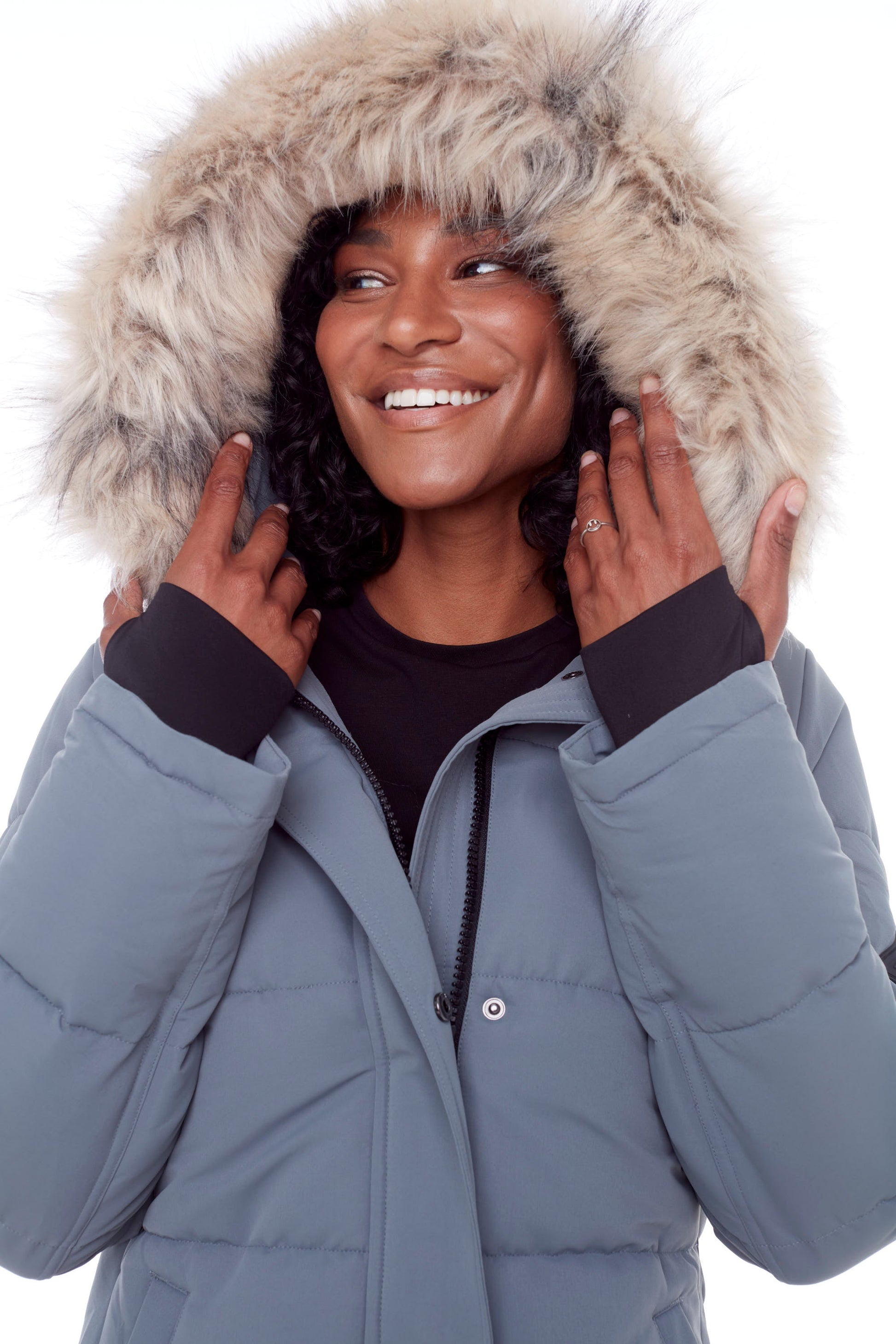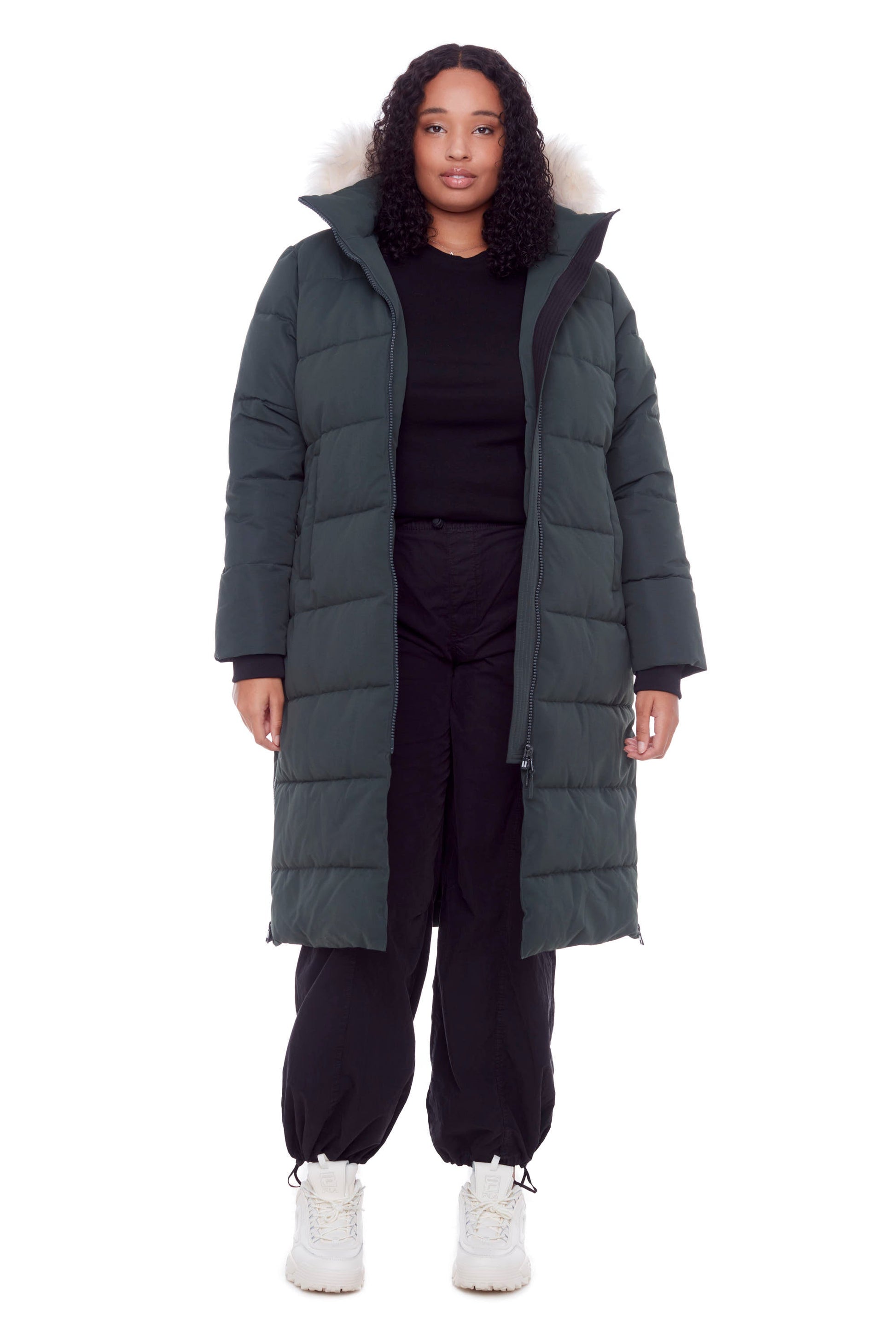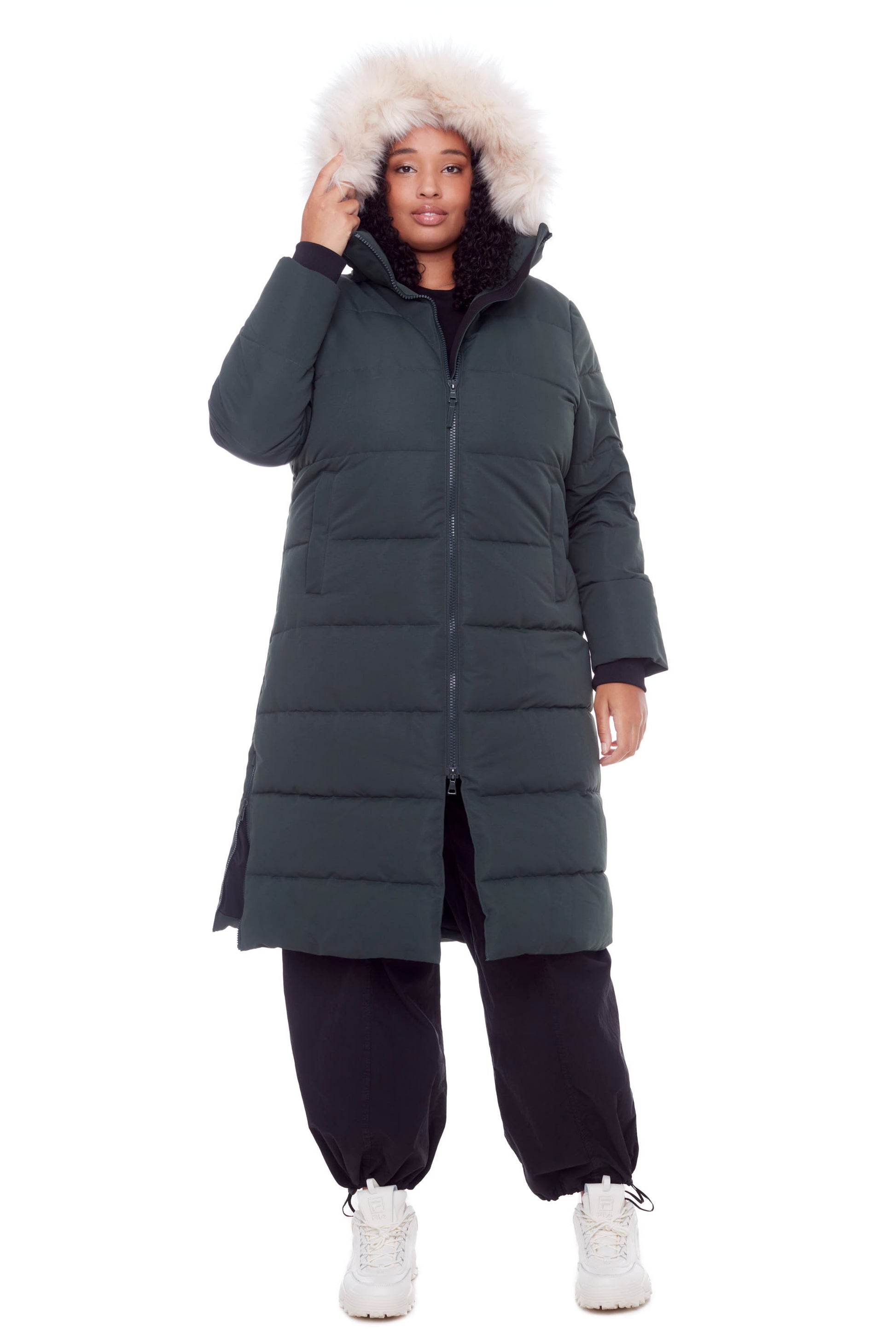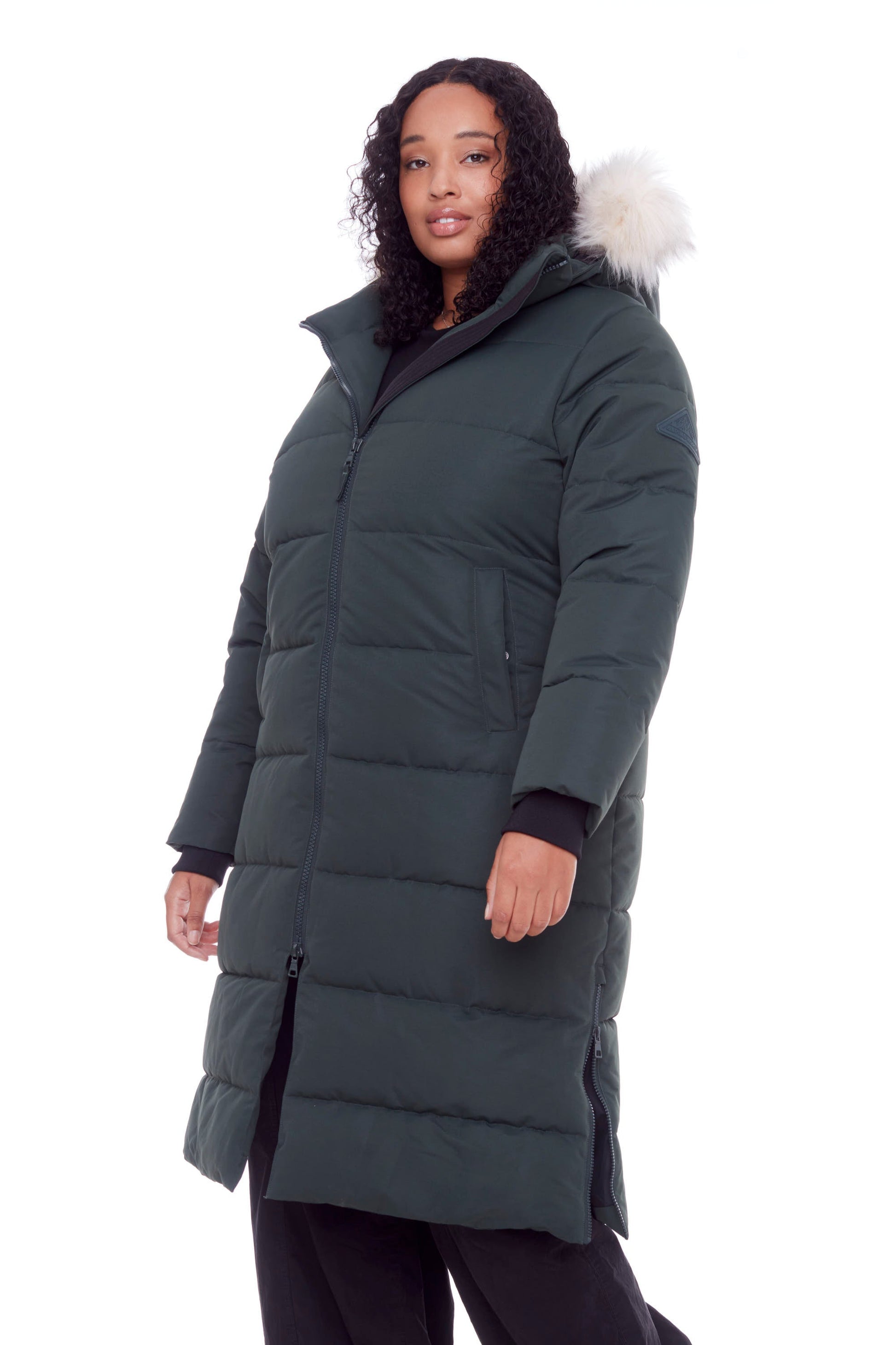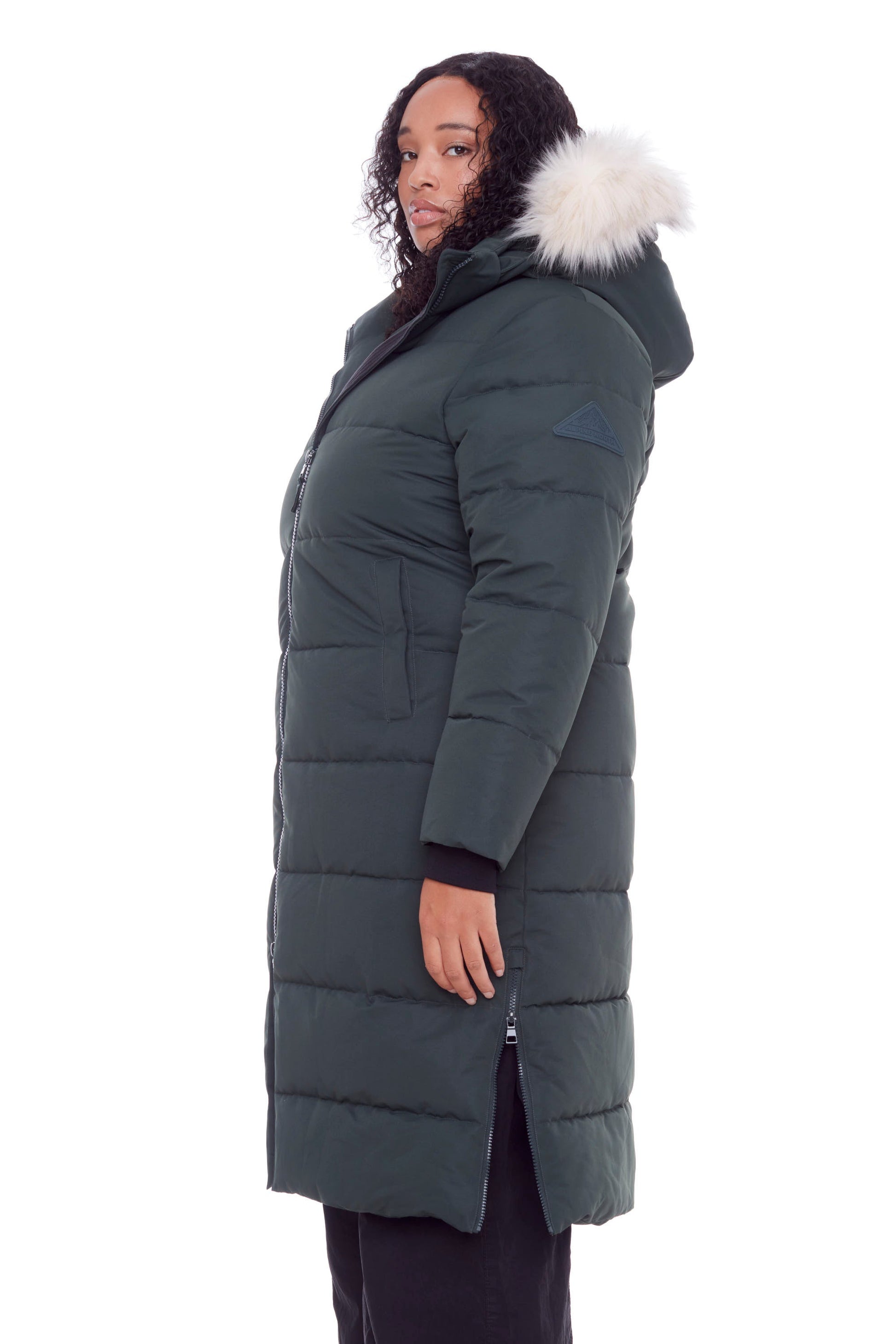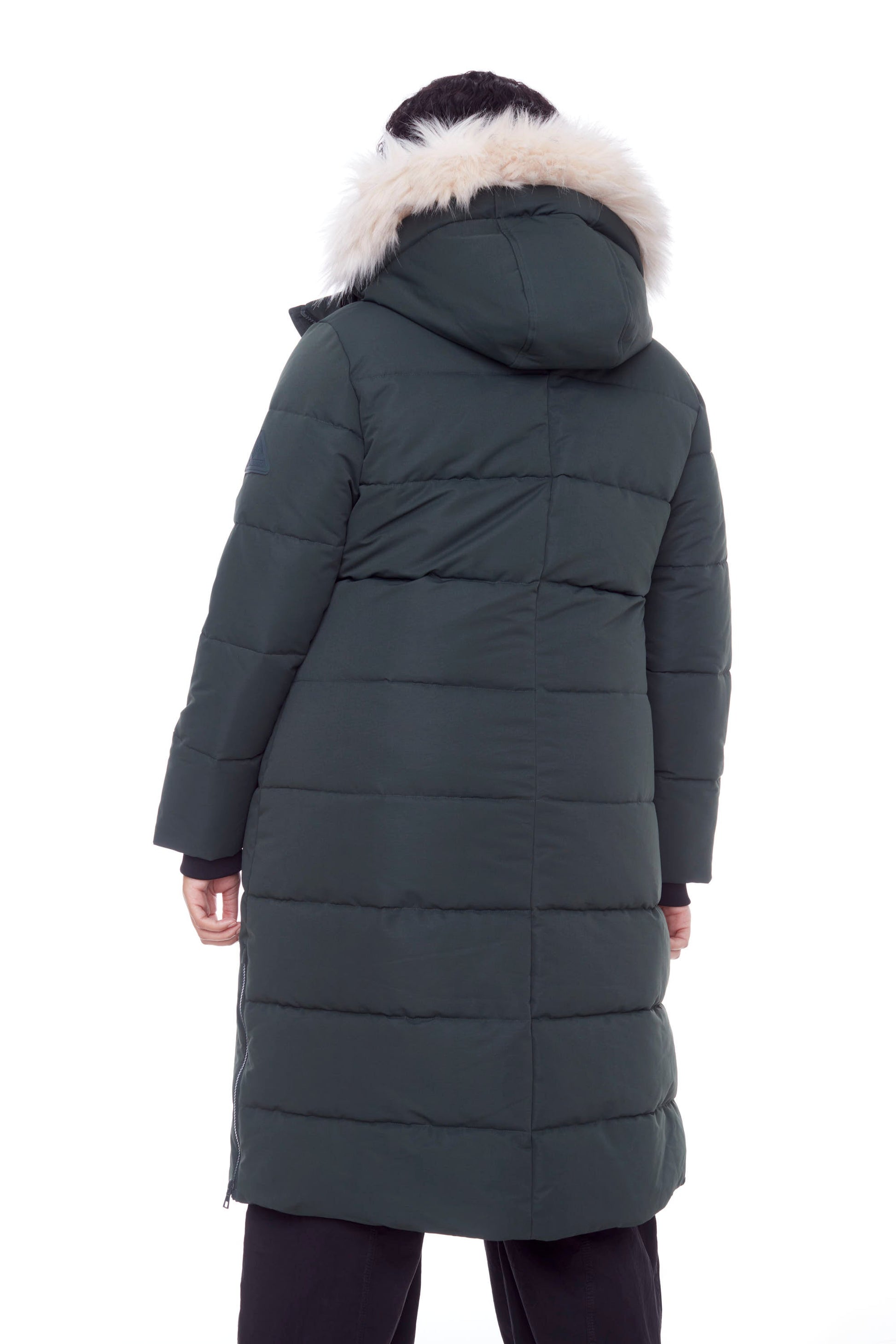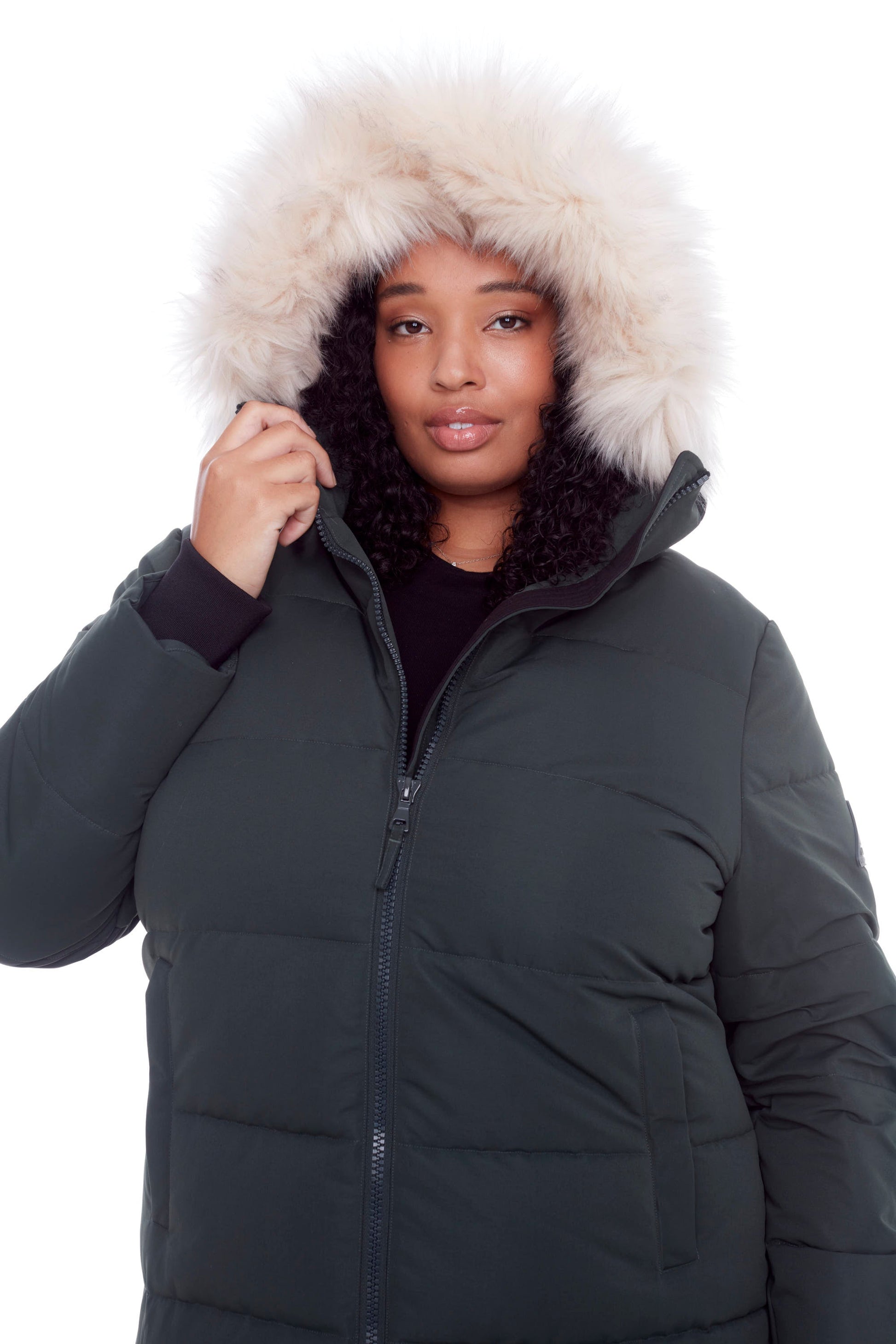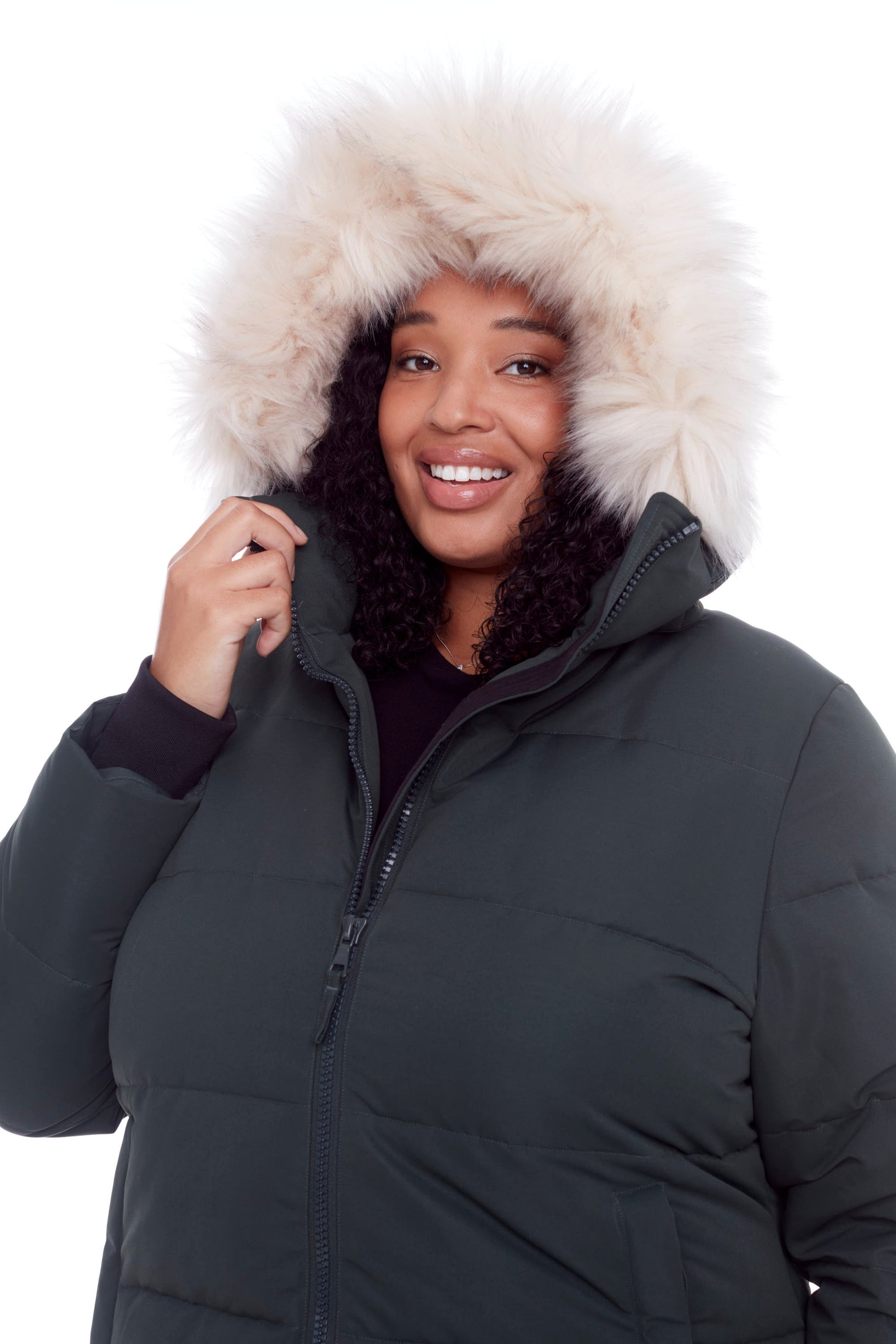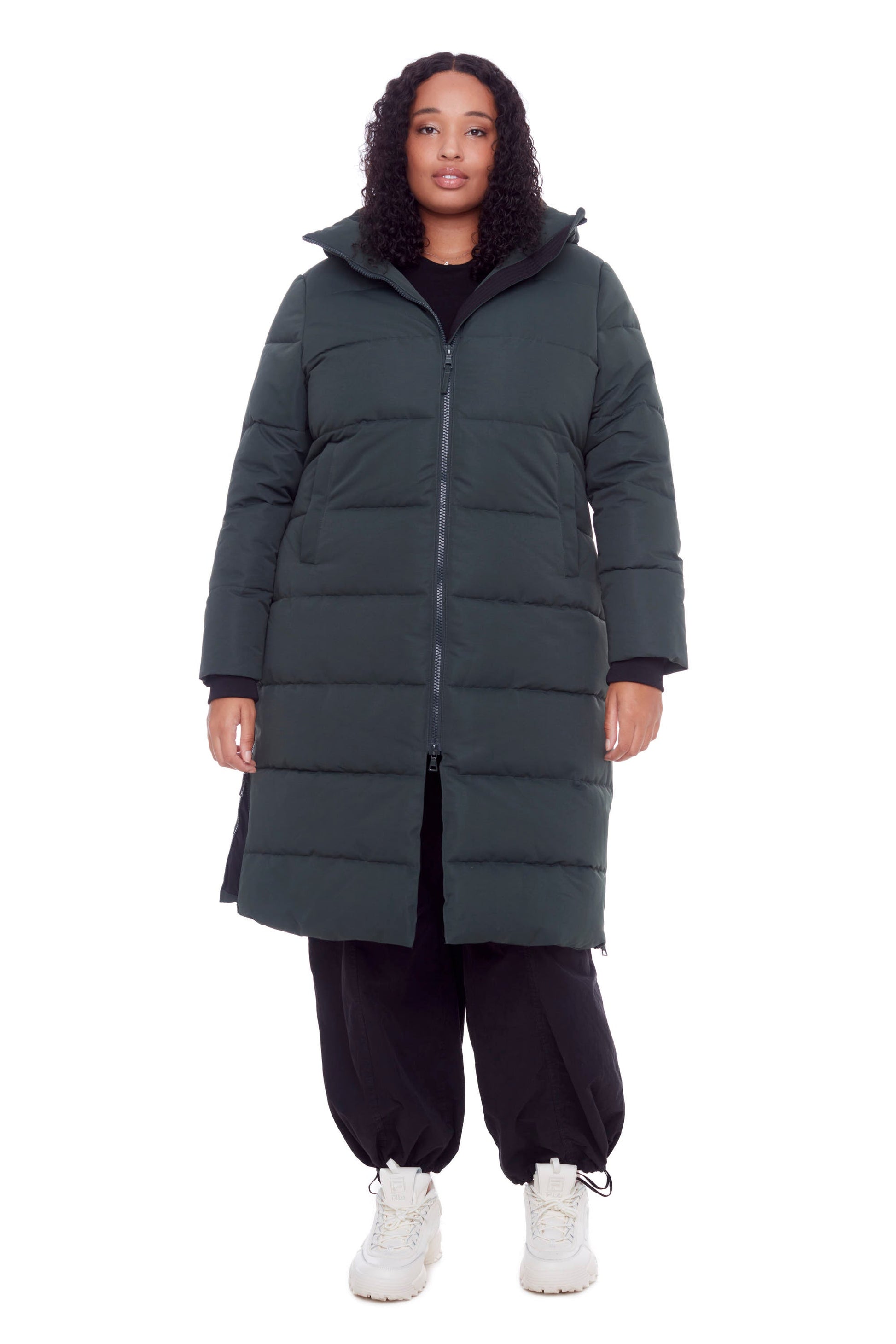Is Everlane fast fashion?
Our take
Is Everlane fast fashion?
Everlane is not a fast fashion brand, but rather positions itself as a direct counterpoint to the fast fashion model through its "radical transparency" approach and focus on timeless essentials. Founded in 2010, this American direct-to-consumer retailer has built its reputation on revealing the true costs behind its products and providing consumers with quality basics designed to last beyond seasonal trends.
Business model
Pricing structure
Everlane employs a mid-range pricing strategy that positions them above fast fashion retailers but below luxury brands. Their transparent cost breakdown shows customers exactly what they're paying for, including materials, labor, transportation, and markup—typically ranging from $15-45 for basic t-shirts, $50-100 for most tops, and $100-200 for outerwear.
The brand's direct-to-consumer model eliminates traditional retail markups, allowing them to offer higher quality at lower prices than comparable traditional retailers. Unlike fast fashion's extreme discount model, Everlane maintains relatively consistent pricing with limited sales, reinforcing their message that their products are already fairly priced.
Supply chain and manufacturing
Everlane selects and partners with factories around the world, including China, Vietnam, Italy, and the United States, claiming to choose them based on ethical practices and specialized expertise. Their "Factories" page provides details about these manufacturing facilities, including images, worker information, and audit histories—a level of transparency uncommon in the fashion industry.
While they provide more factory information than many brands, independent verification of working conditions and living wages remains limited compared to certified Fair Trade or B Corp companies. Their manufacturing model focuses on long-term factory relationships rather than chasing the lowest cost producers, which differs significantly from typical fast fashion sourcing strategies.
Materials and sustainability
Everlane has gradually increased its use of sustainable materials, with initiatives like their ReNew collection made from recycled plastic bottles and commitments to eliminate virgin plastic from their supply chain. They've also introduced organic cotton, recycled cashmere, and more eco-friendly denim production that reduces water usage and eliminates hazardous chemicals.
Their sustainability approach focuses on durable materials and timeless designs that won't quickly become obsolete, contrasting with fast fashion's disposable mentality. However, the majority of their products still use conventional materials, and their sustainability messaging often emphasizes specific initiatives rather than comprehensive transformation of their entire production system.
Product lifecycle and turnover
Everlane releases new products at a measured pace, focusing on updated basics and seasonal necessities rather than rapidly changing trends. Their core items remain available year-round with occasional updates, while seasonal products follow a more traditional fashion calendar with approximately 4-6 main collections annually.
The company designs products intended to last for years, both physically and aesthetically, emphasizing quality construction and classic designs. This "slow fashion" approach directly contrasts with fast fashion's weekly product drops and trend-driven offerings designed for minimal wear before replacement.
What is fast fashion?
Fast fashion refers to a business model in the clothing industry characterized by rapid production of inexpensive clothing that responds quickly to the latest trends. This approach prioritizes speed and affordability over durability and sustainability, enabling consumers to frequently update their wardrobes at low costs.
The fast fashion industry has transformed how clothing is produced, marketed, and consumed globally. What once operated on a seasonal collection schedule has evolved into a near-constant production cycle, with some retailers introducing new styles weekly or even daily.
Key characteristics of fast fashion include:
- Rapid design-to-retail cycle (as little as 2-3 weeks)
- Low production costs and retail prices
- High-volume manufacturing
- Trend-driven designs rather than timeless styles
- Limited durability (garments often designed to last 10 wears or less)
- Significant environmental and social impacts
Common fast fashion retailers
The following brands are considered fast fashion companies:
1. Ultra-fast fashion
-
- Shein
- Fashion Nova
- Boohoo
- Pretty Little Thing
2. Traditional fast fashion
-
- H&M
- Zara
- Forever 21
- Primark
- Uniqlo
These companies have mastered quick-response manufacturing and distributing trendy clothing at accessible price points, though often at significant environmental and social costs.
Frequently asked questions
Is Everlane truly transparent?
Everlane pioneered "radical transparency" in fashion but doesn't fully achieve this ideal. They provide more cost and factory information than most brands, including detailed breakdowns of pricing and manufacturing locations. However, they lack third-party verification of their claims and complete disclosure about labor practices and environmental impacts across their entire supply chain.
Is Everlane ethical?
Everlane demonstrates better ethical practices than fast fashion brands but falls short of the highest ethical standards. They select factories based on ethical criteria and conduct regular audits, but have faced labor controversies, including 2020 union-busting allegations during layoffs. Without comprehensive third-party certification or full supply chain transparency, ethical claims remain partially self-regulated and difficult to verify independently.
Is Everlane good quality?
Everlane offers mid-tier quality that generally exceeds fast fashion but doesn't match premium luxury brands. Their garments typically feature better materials, construction, and durability than mass-market retailers. Customer experiences vary by product category, with some items receiving praise for longevity while others face criticism for inconsistent sizing or premature wear issues after repeated laundering.
Is Everlane a Chinese company?
Everlane is an American company founded in San Francisco, not a Chinese company. While they manufacture some products in Chinese factories, they also produce goods in various countries including Italy, Vietnam, Peru, Sri Lanka, and the United States. Their headquarters and design team remain based in the U.S., with their business model centered on American direct-to-consumer retail principles rather than Chinese manufacturing or ownership.
Does Everlane participate in greenwashing?
Everlane exhibits some greenwashing tendencies while making genuine sustainability efforts. Their marketing often highlights specific eco-friendly initiatives (like recycled plastic collections) while drawing attention away from the conventional materials that comprise most of their line. Without published sustainability reports with measurable impacts or third-party environmental certifications, some critics argue their environmental messaging overstates actual progress, though they're making more substantial efforts than typical fast fashion brands.
Does Everlane have fair labour practices?
Everlane's labor practices show mixed results across their global supply chain. They publish some factory information and claim to ensure ethical working conditions, but lack comprehensive living wage verification or independent labor rights certification. Their 2020 controversy around laying off customer experience team members attempting to unionize raised questions about internal labor practices. While likely better than fast fashion standards, they fall short of labor leaders like certified Fair Trade companies.
How sustainable is Everlane?
Everlane demonstrates moderate sustainability that exceeds fast fashion but lags behind eco-focused brands. Their "designed to last" approach inherently reduces waste, and initiatives like recycled materials and clean denim show progress in specific areas. However, they lack comprehensive environmental metrics, science-based targets, or industry certifications that would verify their overall impact. Their business still relies on continuous production and consumption, though at a slower pace than trend-driven brands.
What are some Canadian alternatives to Everlane?
Several Canadian brands offer similar minimalist aesthetics and ethical claims to Everlane:
- Kotn: Toronto-based certified B Corp creating premium essentials using direct trade Egyptian cotton with transparent supply chains and ethical production in Egypt.
- Frank And Oak: Montreal brand offering sustainable wardrobe staples with innovative materials like recycled polyester and organic cotton, with a focus on circular fashion.
- Encircled: Toronto-based B Corp creating versatile, sustainable basics from eco-friendly fabrics in ethical local manufacturing facilities.
- Matt & Nat: Montreal company known primarily for vegan accessories but also offering minimalist clothing with clean design aesthetics and sustainable materials.
- Poppy Barley: Edmonton-based certified B Corp extending their ethical leather goods approach to clothing with transparent manufacturing and sustainable materials.
These Canadian alternatives typically provide similar quality and aesthetics to Everlane, often with stronger sustainability certifications and local production benefits.
Related Posts
Top 20 Canadian shoe brands that you should know about
20 best stores for online clothing shopping in Canada
Ethical & sustainable Canadian clothing brands: 30 labels that prioritize people and planet
Top 20 Canadian clothing brands: a domestic fashion guide


